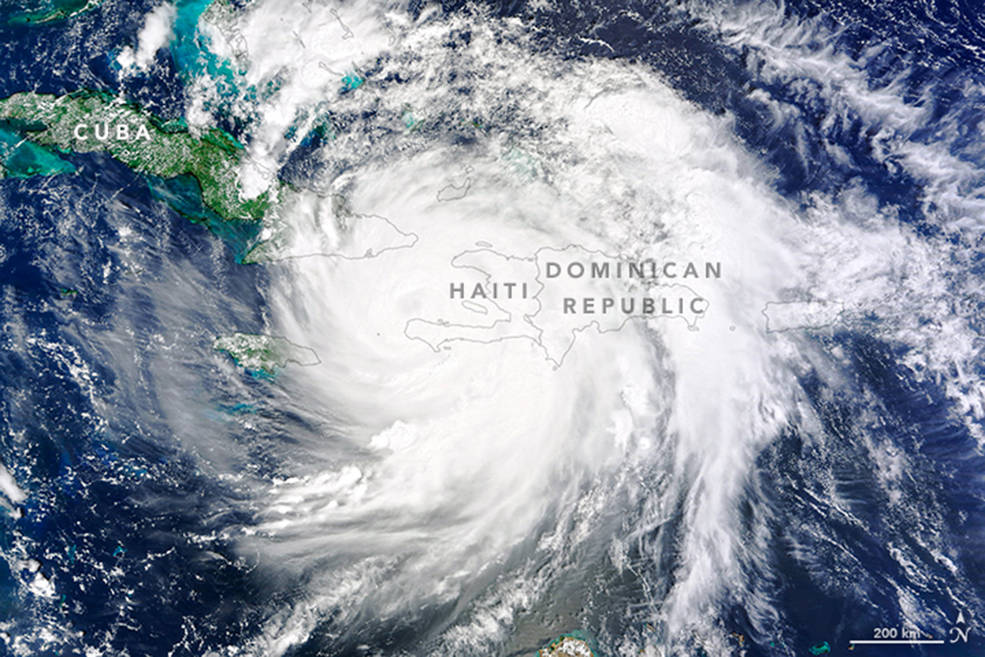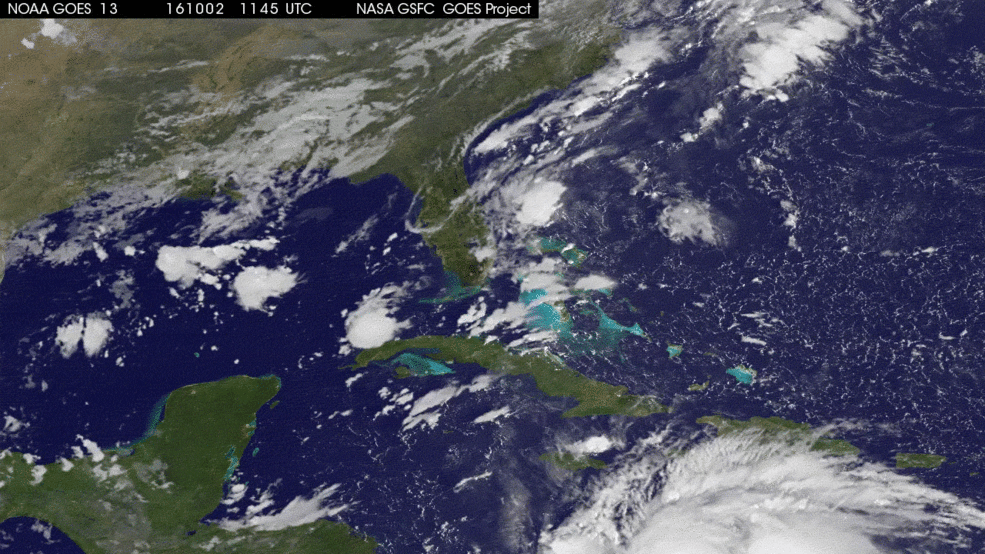
New satellite photos show huge Hurricane Matthew churning its way through the Caribbean toward the Florida coast.
On Tuesday (Oct. 4), NASA's Terra satellite captured Matthew's swirling clouds blanketing Haiti, the Dominican Republic, Puerto Rico and much of eastern Cuba.
The storm made landfall that day in southwestern Haiti as a Category 4 hurricane, the strongest to hit that nation in more than 50 years, NASA officials said. (Category 4 hurricanes have sustained wind speeds of 130 mph to 156 mph, or 209 to 251 km/h. Only Category 5 hurricanes are more powerful.)

As of Wednesday afternoon, Matthew had weakened slightly, to a Category 3 hurricane with sustained winds of around 120 mph (193 km/h). The storm was moving slowly northwest through the Bahamas, with another landfall predicted to take place along Florida's east coast on Thursday night (Oct. 6) or early Friday morning (Oct. 7).
Matthew is currently gaining strength, and experts said they think it will intensify into a Category 4 storm once again before hitting Florida.
To learn more about the storm and its impacts on the Caribbean and the southeastern United States, check out the U.S. National Hurricane Center's special Matthew page here: http://www.nhc.noaa.gov/#MATTHEW
Matthew developed into a tropical storm on Sept. 28 over the Lesser Antilles, then intensified into a hurricane a day later. Images from another satellite — the GOES East spacecraft, which is operated by the U.S. National Oceanic and Atmospheric Administration — show the storm's progress shortly thereafter, tracking Matthew's sluggish north-northwest trek through the Caribbean from Sunday (Oct. 2) through Tuesday. (As of Wednesday afternoon, the hurricane was traveling just 12 mph, or 19 km/h.)
Get the Space.com Newsletter
Breaking space news, the latest updates on rocket launches, skywatching events and more!
Follow Mike Wall on Twitter @michaeldwall and Google+. Follow us @Spacedotcom, Facebook or Google+. Originally published on Space.com.
Join our Space Forums to keep talking space on the latest missions, night sky and more! And if you have a news tip, correction or comment, let us know at: community@space.com.

Michael Wall is a Senior Space Writer with Space.com and joined the team in 2010. He primarily covers exoplanets, spaceflight and military space, but has been known to dabble in the space art beat. His book about the search for alien life, "Out There," was published on Nov. 13, 2018. Before becoming a science writer, Michael worked as a herpetologist and wildlife biologist. He has a Ph.D. in evolutionary biology from the University of Sydney, Australia, a bachelor's degree from the University of Arizona, and a graduate certificate in science writing from the University of California, Santa Cruz. To find out what his latest project is, you can follow Michael on Twitter.
